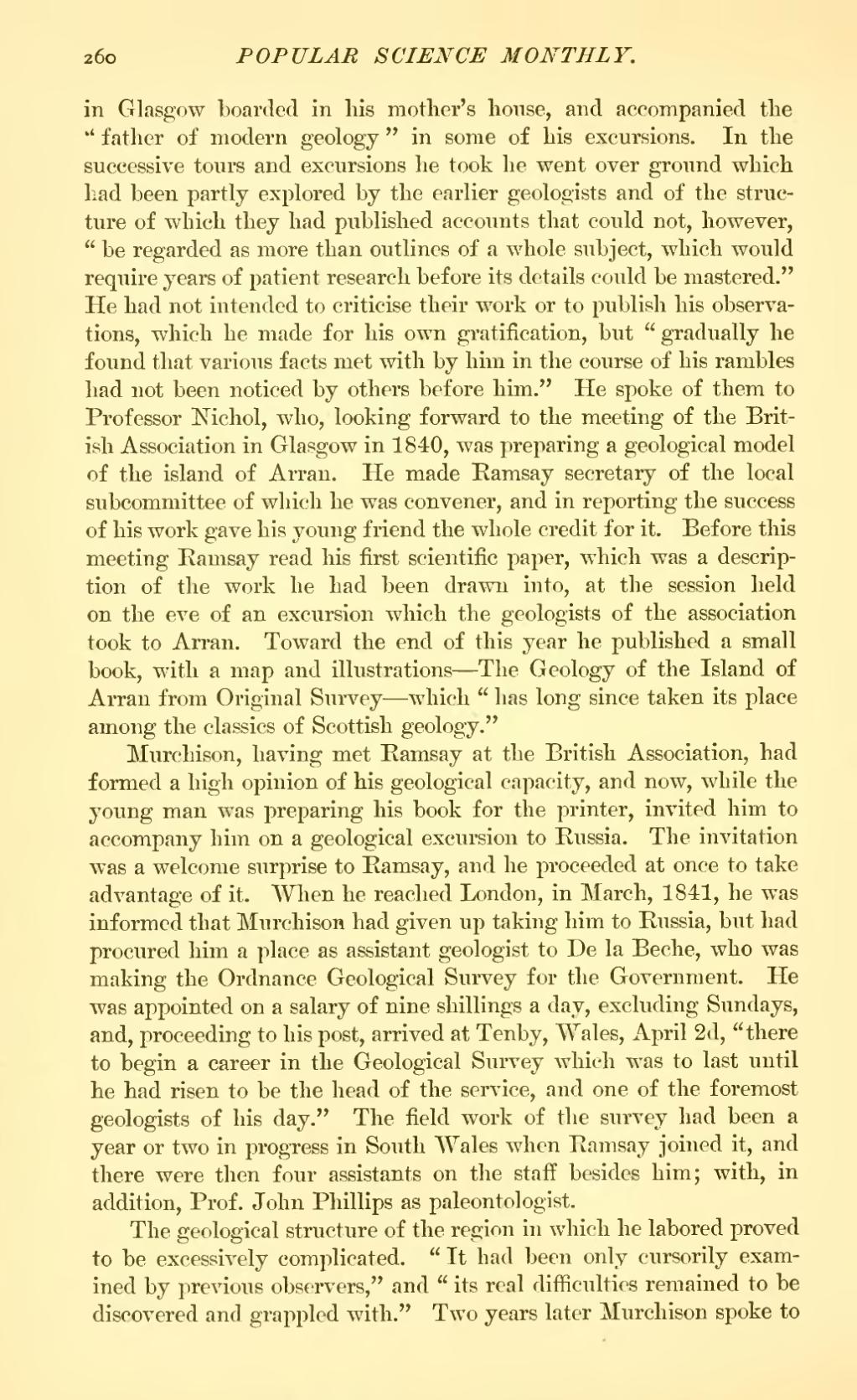in Glasgow boarded in his mother's house, and accompanied the "father of modern geology" in some of his excursions. In the successive tours and excursions he took he went over ground which had been partly explored by the earlier geologists and of the structure of which they had published accounts that could not, however, "be regarded as more than outlines of a whole subject, which would require years of patient research before its details could be mastered." He had not intended to criticise their work or to publish his observations, which he made for his own gratification, but "gradually he found that various facts met with by him in the course of his rambles had not been noticed by others before him." He spoke of them to Professor Nichol, who, looking forward to the meeting of the British Association in Glasgow in 1840, was preparing a geological model of the island of Arran. He made Ramsay secretary of the local subcommittee of which he was convener, and in reporting the success of his work gave his young friend the whole credit for it. Before this meeting Ramsay read his first scientific paper, which was a description of the work he had been drawn into, at the session held on the eve of an excursion which the geologists of the association took to Arran. Toward the end of this year he published a small book, with a map and illustrations—The Geology of the Island of Arran from Original Survey—which "has long since taken its place among the classics of Scottish geology."
Murchison, having met Ramsay at the British Association, had formed a high opinion of his geological capacity, and now, while the young man was preparing his book for the printer, invited him to accompany him on a geological excursion to Russia. The invitation was a welcome surprise to Ramsay, and he proceeded at once to take advantage of it. When he reached London, in March, 1841, he was informed that Murchison had given up taking him to Russia, but had procured him a place as assistant geologist to De la Beche, who was making the Ordnance Geological Survey for the Government. He was appointed on a salary of nine shillings a day, excluding Sundays, and, proceeding to his post, arrived at Tenby, Wales, April 2d, "there to begin a career in the Geological Survey which was to last until he had risen to be the head of the service, and one of the foremost geologists of his day." The field work of the survey had been a year or two in progress in South Wales when Ramsay joined it, and there were then four assistants on the staff besides him; with, in addition, Prof. John Phillips as paleontologist.
The geological structure of the region in which he labored proved to be excessively complicated. "It had been only cursorily examined by previous observers," and "its real difficulties remained to be discovered and grappled with." Two years later Murchison spoke to

